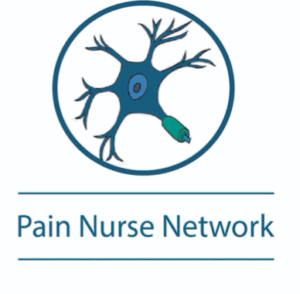Date: Wednesday, March 22, 2023, noon to 1:00 p.m., Eastern (US) Time

This webinar is being produced through a collaboration of the International Association for the Study of Pain’s Acute Pain Special Interest Group (APSIG) and the Pain Nurse Network (PNN). APSIG’s goal is to advance and promote the understanding of mechanisms, assessment, prevention, and management of acute pain, while PNN’s is dedicated to improving patient experience through joint working and educational events/projects.
Intravenous ketamine infusions have been used for decades to treat acute pain, but widespread variability in patient selection, treatment parameters, and monitoring indicates a need for the synthesis of consensus guidelines. This webinar – produced through a collaboration of the International Association for the Study of Pain and the Pain Nurse Network – will explore the use intravenous ketamine in both the United States and the United Kingdom to help identify similarities and differences in their approaches to its utilization. Attention will be paid to the pharmacology of ketamine, how patients are identified for its use, a review of its safety and patient monitoring, and how it can be implemented for acute pain outside of the critical care setting. The webinar will feature:
- Oluwatobi Hunter, DNP, PMGT-BC, AGACNP-BC, Veterans Affairs Palo Alto Health Care System, California, US
- Gillian Chumbley, PhD, RN, Imperial College Healthcare NHS Trust, London, UK
- Rianne L.M. van Boekel, PhD, RN, Radboud University Medical Center, Netherlands (moderator)
- Felicia Cox, FRCN, Royal Brompton and Harefield hospitals, London, UK (moderator)
About the presenters
 Oluwatobi Hunter, DNP, PMGT-BC, AGACNP-BC, is the lead nurse practitioner for Perioperative Pain Management and co-director of the Transitional Pain Service at the Veterans Affairs Palo Alto Health Care System (California, US). Her clinical areas of focus are regional anesthesia and acute pain management, inpatient buprenorphine initiation, and perioperative pain management. She obtained her bachelor’s degree from the University of Pittsburgh (Pennsylvania, US), master’s degree at Columbia University (New York), and doctor of nursing practice at the University of Pittsburgh. She is a board-certified adult gerontology acute care nurse practitioner and pain management nurse. She is also certified in battlefield acupuncture. She currently serves as the webcast liaison for the American Society of Regional Anesthesia and Pain Medicine NP/PA/RN Special Interest Group.
Oluwatobi Hunter, DNP, PMGT-BC, AGACNP-BC, is the lead nurse practitioner for Perioperative Pain Management and co-director of the Transitional Pain Service at the Veterans Affairs Palo Alto Health Care System (California, US). Her clinical areas of focus are regional anesthesia and acute pain management, inpatient buprenorphine initiation, and perioperative pain management. She obtained her bachelor’s degree from the University of Pittsburgh (Pennsylvania, US), master’s degree at Columbia University (New York), and doctor of nursing practice at the University of Pittsburgh. She is a board-certified adult gerontology acute care nurse practitioner and pain management nurse. She is also certified in battlefield acupuncture. She currently serves as the webcast liaison for the American Society of Regional Anesthesia and Pain Medicine NP/PA/RN Special Interest Group.
 Gillian Chumbley, PhD, RN, is a nurse consultant in pain management – working in pain management for more than 29 years – and has spent the last 20 years at Imperial College Healthcare NHS Trust, London, UK. She achieved her PhD from St. George’s Hospital Medical School (London, UK) in 2001. She received a postdoctoral research grant from the National Institute for Health Research in 2010, and her interests include the use of ketamine for complex pain, the safe use of opioids for persistent pain, pain and the microbiome, and the safety of intravenous infusions. Her interest in ketamine was sparked in 2002 when she heard Professor Stephen Schug (University of Western Australia) speak in London. Almost three years later she obtained a travel bursary to visit Perth and learn more about the use of ketamine. She brought this knowledge back to London and started to use ketamine routinely in her Trust in 2005. Her guideline has been shared with more than 60 centers in the UK and abroad. Chumbley is a member of the organizing committee for the National Acute Pain Symposium and sits on the Pain Council at the Royal Society of Medicine. She was recently part of the EFIC Taskforce producing guidance on the use of opioids for chronic non-cancer pain.
Gillian Chumbley, PhD, RN, is a nurse consultant in pain management – working in pain management for more than 29 years – and has spent the last 20 years at Imperial College Healthcare NHS Trust, London, UK. She achieved her PhD from St. George’s Hospital Medical School (London, UK) in 2001. She received a postdoctoral research grant from the National Institute for Health Research in 2010, and her interests include the use of ketamine for complex pain, the safe use of opioids for persistent pain, pain and the microbiome, and the safety of intravenous infusions. Her interest in ketamine was sparked in 2002 when she heard Professor Stephen Schug (University of Western Australia) speak in London. Almost three years later she obtained a travel bursary to visit Perth and learn more about the use of ketamine. She brought this knowledge back to London and started to use ketamine routinely in her Trust in 2005. Her guideline has been shared with more than 60 centers in the UK and abroad. Chumbley is a member of the organizing committee for the National Acute Pain Symposium and sits on the Pain Council at the Royal Society of Medicine. She was recently part of the EFIC Taskforce producing guidance on the use of opioids for chronic non-cancer pain.
About the moderators
 Rianne L.M. van Boekel, PhD, RN, is a trained nurse, teacher, epidemiologist, and researcher. She is currently assistant professor in the Department of Anesthesiology, Pain, and Palliative Medicine at Radboud University Medical Center in the Netherlands. She’s won several personal scholarships/awards and is a member of several (inter)national scientific (advisory) committees. Van Boekel chaired the Dutch Association of Pain Nurses from 2015 to 2021, and actively collaborated with European colleagues to develop the Core Curriculum for the European Diploma in Pain Nursing, published in 2019. She is the chair of IASP’s Acute Pain Special Interest Group.
Rianne L.M. van Boekel, PhD, RN, is a trained nurse, teacher, epidemiologist, and researcher. She is currently assistant professor in the Department of Anesthesiology, Pain, and Palliative Medicine at Radboud University Medical Center in the Netherlands. She’s won several personal scholarships/awards and is a member of several (inter)national scientific (advisory) committees. Van Boekel chaired the Dutch Association of Pain Nurses from 2015 to 2021, and actively collaborated with European colleagues to develop the Core Curriculum for the European Diploma in Pain Nursing, published in 2019. She is the chair of IASP’s Acute Pain Special Interest Group.
 Felicia Cox, FRCN, is a nurse consultant in pain management. She is a past chair of the Royal College of Nursing (RCN) Pain and Palliative Care Forum and a co-opted member of the Council of the British Pain Society. Cox is a committee member of the EFIC COVID-19 task force and EFIC Research Strategy group, the IASP Acute Pain Special Interest Group, and a founding member of the Pain Nurse Network. She is the co-editor of the British Journal of Pain. The breadth of her pain-related publications spans the continuum from the Daily Telegraph to The Lancet, in addition to systematic reviews, chapters, and books. She has also co-authored e-learning modules on pain and medicine safety, and has contributed to several Family Practice Management publications. She is an honorary lecturer at King’s College London, UK, and has been awarded honorary membership of the British Pain Society and Fellowship of the RCN for her services to pain. Her clinical and research interests include chronic postsurgical pain and procedural pain. She enjoys supporting novice authors in publishing and disseminating their work.
Felicia Cox, FRCN, is a nurse consultant in pain management. She is a past chair of the Royal College of Nursing (RCN) Pain and Palliative Care Forum and a co-opted member of the Council of the British Pain Society. Cox is a committee member of the EFIC COVID-19 task force and EFIC Research Strategy group, the IASP Acute Pain Special Interest Group, and a founding member of the Pain Nurse Network. She is the co-editor of the British Journal of Pain. The breadth of her pain-related publications spans the continuum from the Daily Telegraph to The Lancet, in addition to systematic reviews, chapters, and books. She has also co-authored e-learning modules on pain and medicine safety, and has contributed to several Family Practice Management publications. She is an honorary lecturer at King’s College London, UK, and has been awarded honorary membership of the British Pain Society and Fellowship of the RCN for her services to pain. Her clinical and research interests include chronic postsurgical pain and procedural pain. She enjoys supporting novice authors in publishing and disseminating their work.


